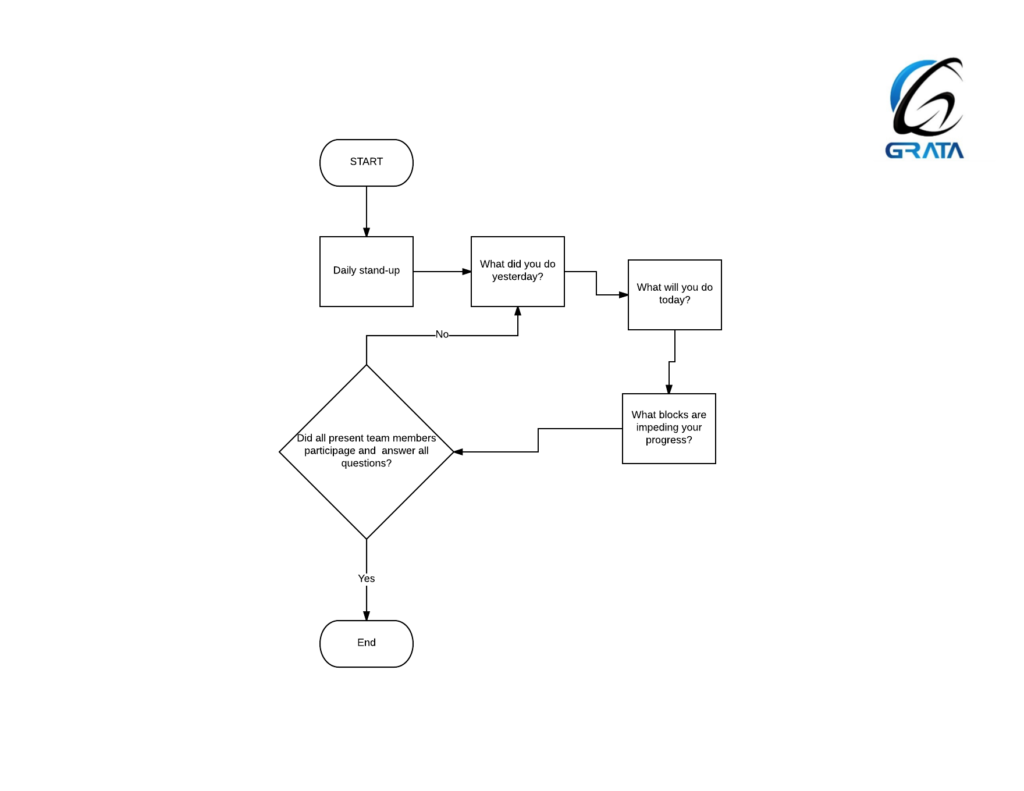What is Scrum
You’ve probably heard the term Scrum before in Agile project management. You’ve also probably heard of daily Scrums. But do you know what they are and why they are essential?
Scrum is an Agile framework used to complete projects of different sizes. It focuses on the values of the customer and how to organize and deliver those values. Because of how it is structured, it is beneficial for complex projects with many features to build and implement.
There’s a certain process that is followed in Scrum. This process includes:
- Product Backlog – a list of tasks with user stories prepared and prioritized by the product owner
- Sprint Planning – selecting tasks from the product backlog to be worked on
- Sprints – performing work in two to four-week iterations
- Daily Scrums – fifteen-minute daily stand-up meetings
- Sprint Review – demonstrating working software and obtaining feedback from stakeholders
- Sprint Retrospectives – reviewing successes and failures to determine how things can be done better moving forward
You will notice in this list that daily Scrums, also known as daily stand-ups, are included in the process of Scrum. These daily Scrums are sometimes taken for granted and can also be misinterpreted. However, daily Scrums are crucial during a sprint to ensure the team is moving towards their sprint goal.
What is a Daily Scrum?
The daily Scrum is a time-boxed fifteen-minute stand-up meeting between the development team. It is meant for the team to check in and state what they accomplished the day before, what they will be working on today, and what blocks are impeding their progress. A Scrum Master can help facilitate the meeting, but this stand-up is mainly for the development team. Other team members, such as the project manager, can be present, but the PM is more of a spectator and is meant to take note of any blockers the team is experiencing to help remove those for them.
So why are daily scrums so important?
- It gives a snapshot view of the progress of the team and how they are doing in their sprint
- They allow the team to review and adapt the sprint backlog
- It gives insight into how quickly the team is moving through their assigned tickets
- It helps the team to coordinate the work being done and to plan their days
- Progress in the sprint is managed to make sure everyone is still on track with meeting the sprint goal
- It gives an early indicator of if the team will complete their sprint on time or if there will be unfinished tasks at the end of the sprint
- The team members can discuss any blockers that might be preventing them from completing their tasks that need to be dealt with
As you can see, the daily Scrums are essential in keeping the team on track and ensuring the sprints move smoothly. This is why they should be included. Communication is a significant factor in success, and the daily Scrum helps keep the communication lines open within the team.
Below is a chart that shows a simple flow of how the daily Scrums should be conducted. They should always be time-boxed and happen daily at the same time and place.

Our Approach
At Grata, we strive to conduct daily Scrums for all our projects. However, the methods vary depending on the client and team. For example, one of our daily Scrums is held every day at 11:30 a.m. via GoToMeeting, where the team can share their screens, so everyone is connected through video and audio since the team’s locations vary. We’ve also automated one of our daily Scrums using Geekbot and Slack that asks all team members the three questions in the process chart above. The answers get posted for everyone on that team to review and see if anything needs to be addressed further.
Please remember to be consistent with them regardless of the approach you choose for your daily Scrums to get the value out of having them.
Need help with your next project? Contact us today to learn more about our services.
References:
Jarrell, J. (2016, May 20). Scrum Master Fundamentals – Foundations. Retrieved August 10, 2017, from https://app.pluralsight.com/library/courses/scrum-master-fundamentals-foundations/table-of-contents
O’Connell, K. (2017, July 18). Scrum Advanced. Retrieved August 10, 2017, from https://www.lynda.com/Business-Skills-tutorials/Scrum-Advanced/550574-2.html
Starr, D. (2012, October 23). Scrum Fundamentals. Retrieved August 11, 2017, from https://app.pluralsight.com/library/courses/scrum-fundamentals/table-of-content

